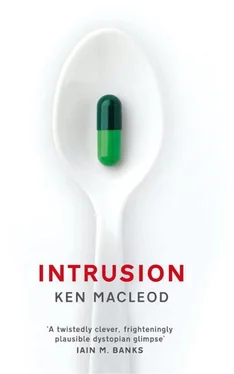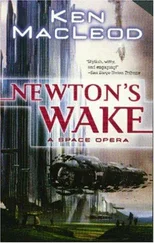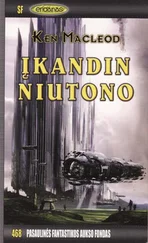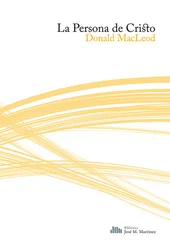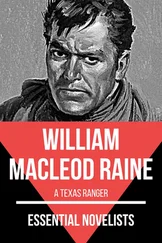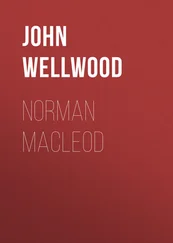The obvious thing would be to call Maya. Geena flinched from the thought. She’d named Maya, she was sure of that. Fairly sure. She didn’t remember all she’d said, blabbed, blubbered. Everything. Everyone. What a little sneak she had been. And it wasn’t even as if she had suffered real torture. Just the clinical, sterile application of pain. Routine. Helping with enquiries. Nothing to write to Amnesty about. She must be weak, far weaker than she’d ever imagined.
Then, as her thoughts circled, like crows over roadkill, and her self-incriminations yelled accusations at her, she realised that this too was part of the ordeal. The aftershock was an intended result.
But they’d given her the trauma counselling leaflet! They must understand! They’d agreed she was innocent! They didn’t intend her to feel like this. Or if they did, they’d provided a helpline. No doubt there was a call centre. Probably in China. Or, if the leaflet was personalised, Brazil. They spoke Portuguese there. A sympathetic shoulder, a familiar idiom, a friendly female voice and face on the phone. She could feel it now like a hug. It would be like calling her mother, whom she couldn’t call because she didn’t want to drag her into this, and because her mother would be ashamed.
No. This too. Trauma counselling was part of the process. Proactive prophylaxis against the possible disarticulation of the subject position. Or, to put it in plain English, they didn’t want people just going to pieces. That wouldn’t do at all. How many people, Geena wondered, had been through this and never spoken about it, except to a trauma counsellor? Nobody had ever told her about it. Not in so many words. So why had she panicked at the prospect of going into the van? A lifetime of glances, shaken parental fingers, averted looks, dropped hints, sick jokes in the playground. She had known, all right. She had known what went on in police vans. She had known more.
There had been that time, in Southall, when she’d carried a fragrant paper bag of coconut barfi out of a café, and stepped out on the pavement, and a man a few metres away had exploded in a red mist. Next thing she knew, she was sitting on the parapet of the bridge over the canal, by the pub, looking down at a paper bag butcher-shop-splattered on the outside and with a few yellow crumbs in the bottom corners, and all the front of her clothes sticking to her skin.
She should have had trauma counselling for that, Geena thought, as she drained the mug. Hah. She rinsed it in the sink and went to have a shower, ready to face the day. She knew who to talk to.
The Institute for Science Studies offices, all five of them, were in the Mechanical Engineering block, somewhat to the annoyance of the remaining Mech. Eng. lecturers, not one of whom didn’t still think the taunt that if you lot think science is ideology why don’t you step off the roof? was to the point. Geena spared a glance as always for the vast blue-painted cylindrical machine, a turbine she guessed, whose function she had never got around to enquiring about, that dominated the entrance hall, and hurried up the broad concrete stairs. Around and around, to the fourth floor. At each landing a helpful notice informed her how high a mountain a daily ascent to that level would represent over an academic year. This had never struck Geena as a sensible yardstick. Her Goan great-grandmother could climb Mount Snowdon if given three-hundred-odd days to do it, and look at her.
The door of Geena’s supervisor’s office was open. Geena leaned in and knocked sideways.
‘Uh, Ahmed…’
‘Ah, good morning, Geena! Come on in.’
Dr Ahmed Estraguel was a man in his mid-thirties, of short and agile build, with a walk like a dancer or a bantamweight boxer, and an alert, darting gaze. Black hair to the collar of his open denim shirt, pointed black beard, skin somewhat lighter than Geena’s own. He stood for a moment, half-bowing to shake hands across the cluttered desk, and waved to the low-slung armchair in front of it. Geena settled, screwing up her eyes slightly against the sunlight slanting through the window over his left shoulder.
‘How’s things?’ Ahmed asked. This meeting was one pencilled in, just a quick update on how her work was going, but it hadn’t been definite, so he looked mildly surprised and pleased to see her.
‘Things are fine,’ said Geena. ‘At SynBioTech.’ She gestured a heap. ‘Lots of notes. Good obs and some… you know, the ideas are coming along.’
‘Good, good. I’ve been following them on the doc space, and I agree it’s coming along fine, but it’s good to hear it from you.’
He shot her a quick, tight smile, as if to say she should drop in more often.
She acknowledged this with a glance down and a nod. Then she looked up.
‘But apart from that… uh, there’s something I’d like to talk about. Privately.’
Ahmed’s black eyebrows lifted. ‘How privately?’
Geena looked over her shoulder at the door. ‘Off the record. Personal logs only.’
His lips compressed and twitched sideways. ‘Hmm. Very well. I’d better fix us some coffee. Usual?’
‘Black, no sugar, thanks.’
Ahmed sidled past, and out into the corridor. As she waited for his return, Geena scanned from the low vantage of her chair the books on the shelves that lined the walls. Despite all advances in information technology – every title she could see was easily accessible on her glasses – most academics persisted in stockpiling hard copy, as if in anticipation of the day when some Naxal software worm or other global disaster brought down the Net. So Dr Estraguel had his own thesis ( Fictitious Capital and the Political Economy of Promise ) at floor level, then the sociology textbooks he’d read as an undergraduate – Giddens, Parsons, Habermas – and the theoretical works with which he’d supplemented them – Foucault, Lacan, Derrida; Marx’s Capital (three faded-brown-dust-jacketed hardback volumes in the antique Moscow edition, as well as the more familiar Penguin Classics in battered paperback), with commentaries thereon by Althusser, Dunayevskaya, Fine and Saad-Filho, Ticktin, Mandel and Rosdolsky; early science studies by Popper, Kuhn, Latour, Lakatos, Bloor, Baskhar; rows and rows of monographs and recent books, fiction and non-fiction; on higher shelves the current sociology textbooks, including the latest, to which he’d contributed a chapter himself. But upon them all, as far as Geena could see, dust was gathering. Like almost everyone else with shelved books, when Ahmed wanted to read one he’d glance at its title and summon it on his glasses rather than haul it down.
Coffee, though, you couldn’t digitise that. Its smell and the warning twinge that went along with it. Ahmed came in with two plastic cups and pushed the door shut behind him.
‘Now,’ he said, back behind his desk, ‘Geena, could you please…’
He waved behind his right shoulder in the direction of the ceiling-corner camera.
‘Oh, sure,’ said Geena. ‘Dr Estraguel, I’m requesting that you turn off the internal surveillance camera, and I’m affirming that I’ve read and understood the college regulations in this respect.’
‘Fine, OK.’ Ahmed slipped on his glasses and looked over his shoulder up into the corner, then snapped his fingers. ‘Right.’ He settled back and sipped. ‘Fire away.’
Geena picked up her cup and put it back down at once, so as not to spill it. She clasped her hands together on her lap. She told him what had happened.
‘Oh, Geena!’ Ahmed spread his arms. ‘I would…’
‘Thanks. I know you can’t.’ She sighed. ‘I’m all right, really. It’s just… I named you, you know, as someone I knew who was sort of radical… I didn’t accuse you, didn’t point a finger’ – she caught her breath, tried to laugh – ‘so to speak, as far as I can remember, but to be honest it’s all a bit like white noise in my head, and I’m so sorry.’
Читать дальше
